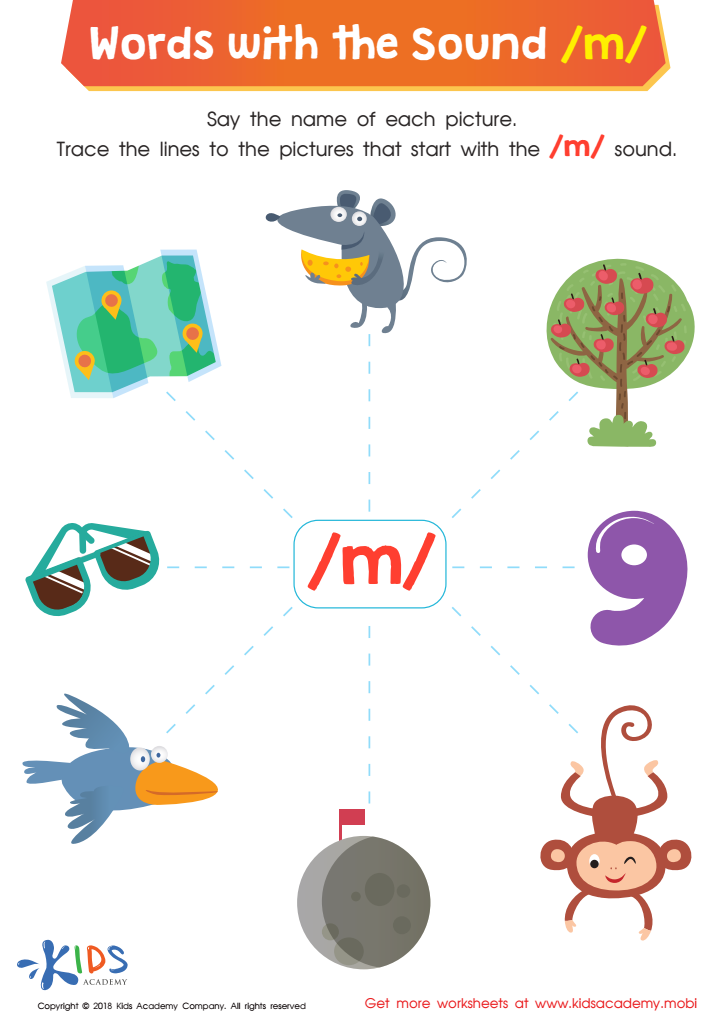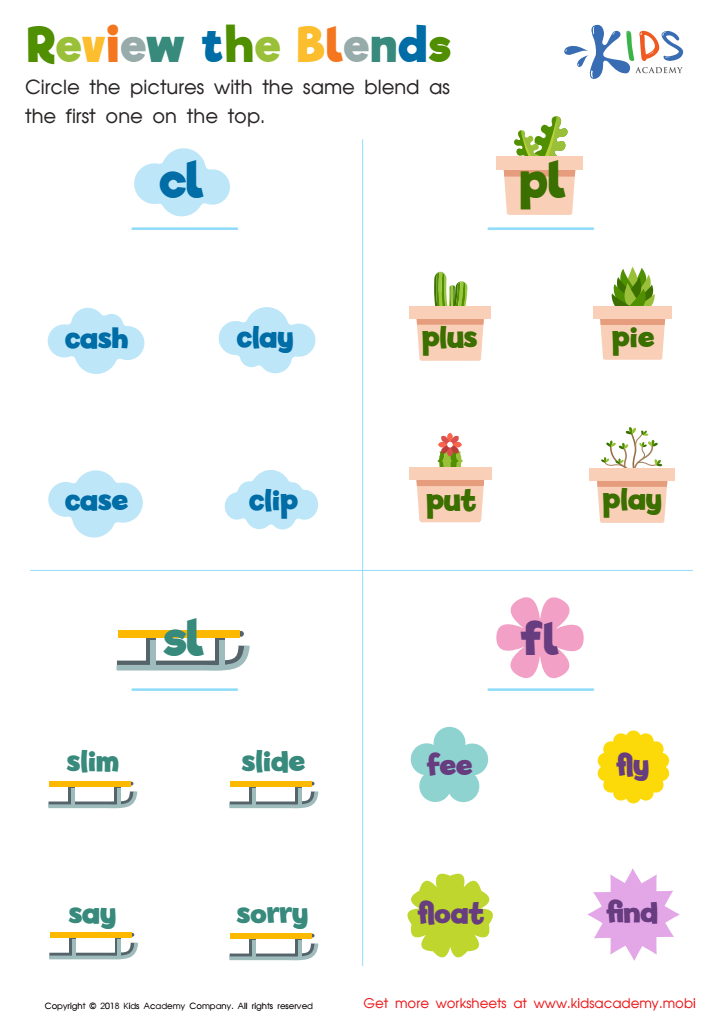Phonics practice Normal Consonants Worksheets for Ages 3-6
5 filtered results
-
From - To
Welcome to our Phonics Practice - Normal Consonants Worksheets designed for children aged 3-6! These engaging resources are perfect for young learners to master consonant sounds while building essential early literacy skills. Each worksheet features fun activities that encourage letter recognition, sound practice, and phonemic awareness. Your child will enjoy tracing, coloring, and identifying consonants in an interactive format. These worksheets are ideal for parents, teachers, or caregivers seeking to enhance phonics instruction at home or in the classroom. Start your child's journey to reading confidence today with our carefully crafted worksheets that turn learning into an enjoyable adventure!


Twin Onset Worksheet


Words with sound p Reading Worksheet


Words with sound f Reading Worksheet


Words with Sound M Reading Worksheet


Review the Blends Worksheet
Parents and teachers should prioritize phonics practice, particularly with normal consonants, for children aged 3-6 as it lays the foundation for effective reading and writing skills. At this age, children are developing their language abilities, and understanding consonants is critical for phonemic awareness, which is the ability to recognize and manipulate the sounds in words.
Phonics teaches young learners how letters correlate with sounds, enabling them to decode words when they come across unfamiliar texts. Mastery of consonants helps children blend sounds, an essential step toward reading fluency—facilitating better comprehension and expression in both spoken and written forms.
Engaging with phonics through games, songs, and interactive activities makes learning enjoyable, increasing students’ motivation and confidence. Additionally, strong phonics skills contribute to literacy development beyond the early years, impacting academic performance in all subjects.
Finally, early intervention through phonics practice supports children who may struggle with language skills, empowering them to achieve proficiency and fostering a love for learning. Thus, incorporating regular phonics practice aligns with developing foundational literacy skills crucial for lifelong success.
 Assign to My Students
Assign to My Students








